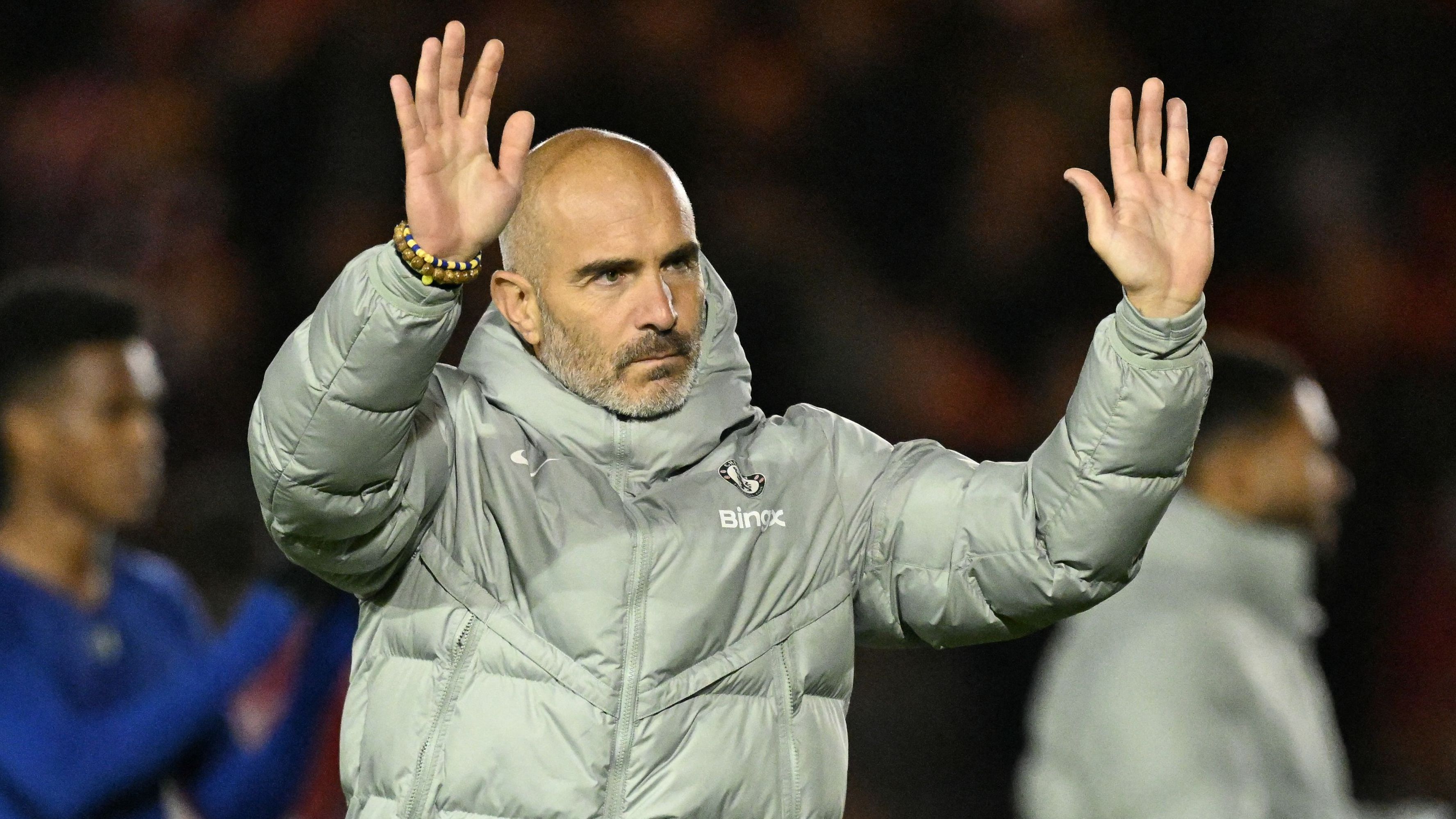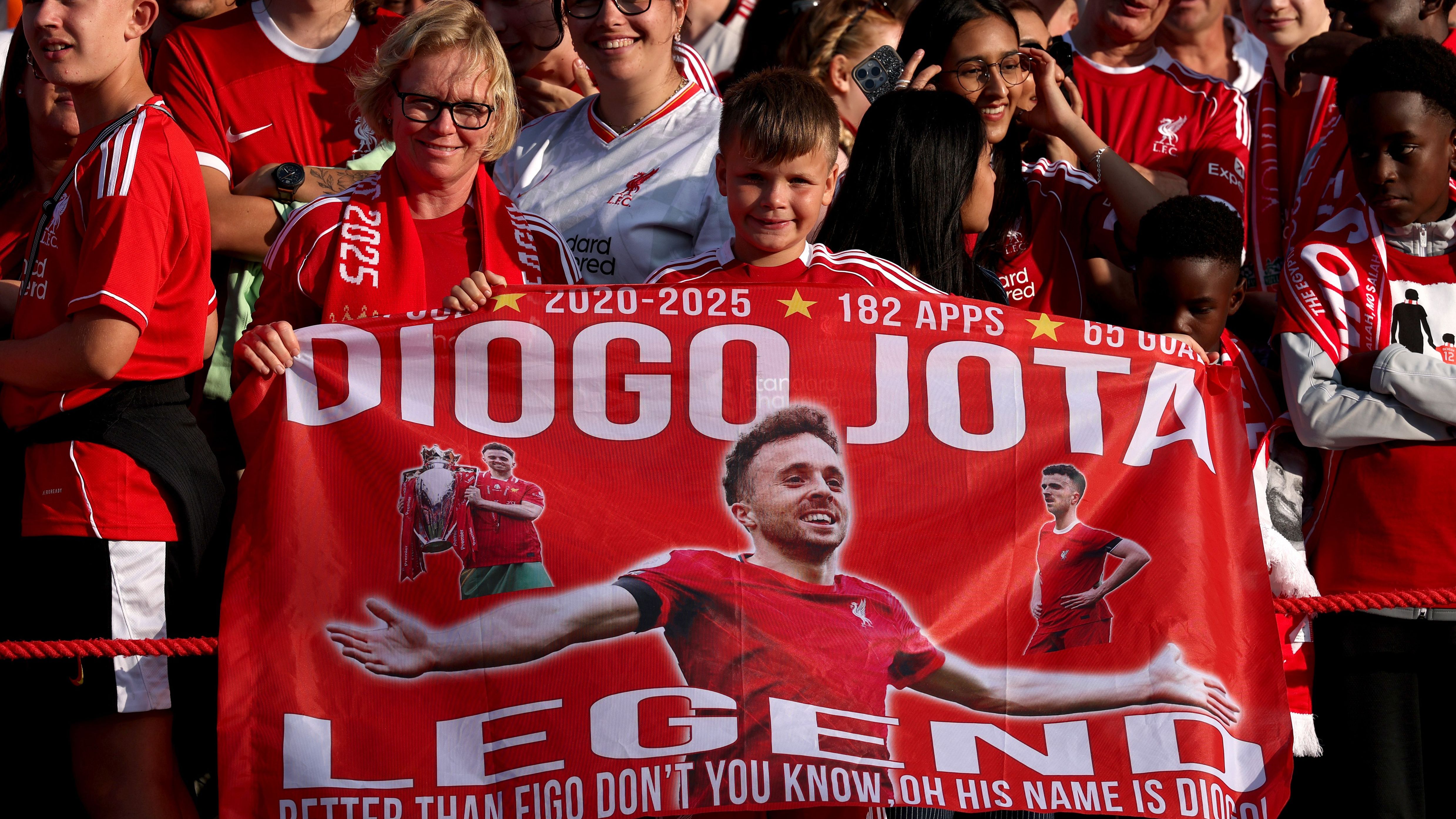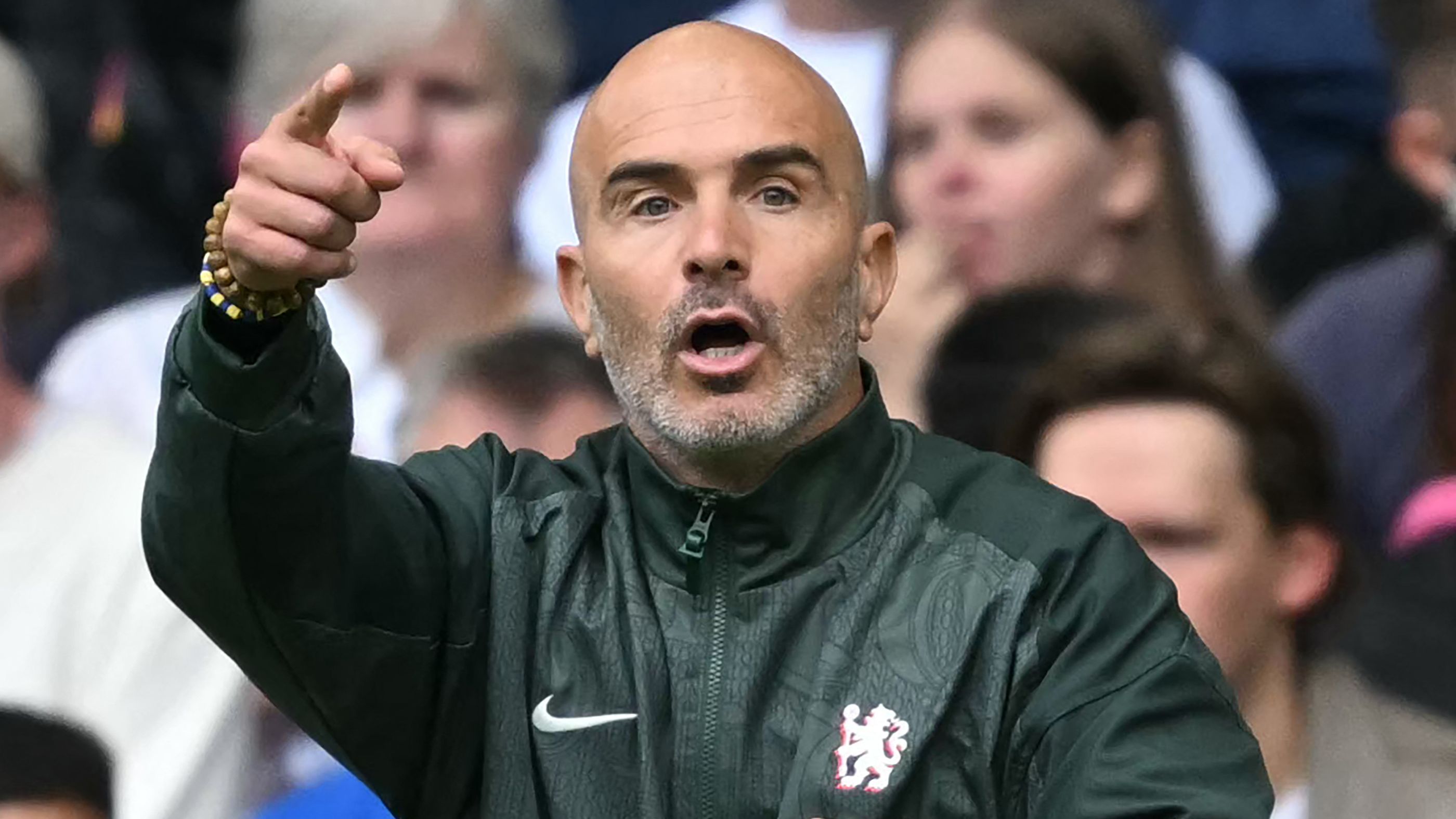


Enzo Maresca’s Empathy in the Wake of Football Tragedies
In a poignant display of shared grief, Chelsea boss Enzo Maresca has opened up about his own devastating loss from his playing days at Sevilla, extending heartfelt compassion to the Liverpool squad, fans, and the loved ones of the late Diogo Jota, who perished in a vehicular mishap earlier this year. This reflection comes as Chelsea prepares to take on Liverpool at Stamford Bridge, highlighting the emotional undercurrents in the world of professional football.
Maresca Reflects on His Personal Heartache
During his time as a player, Enzo Maresca faced an unimaginable ordeal that left a lasting mark, prompting him to voice deep understanding for those affected by similar misfortunes in the sport. His former teammate, Antonio Puerta, suffered a fatal collapse on the field in 2007 due to complications from an inherited health issue, an event that shook Maresca to his core and fostered a sense of solidarity with grieving communities like that of Liverpool after Jota’s untimely passing.
The Details of Diogo Jota’s Untimely Demise
The Liverpool striker and Portuguese national team member, Diogo Jota, met a tragic end in a car accident in July, alongside his sibling, while en route through Spain’s Zamora region toward Santander for a ferry journey back to Britain. Having just recovered from a routine lung procedure, Jota was counseled against air travel, leading to this fateful road trip. Authorities from the Spanish Civil Guard indicated that a tire failure caused their Lamborghini to veer off the road during an overtaking maneuver, resulting in a fire that claimed both Jota and his brother instantly. At 28, Jota had recently celebrated his marriage to his longtime partner and mother of his three kids, Rute Cardoso, only days before the incident.
Recalling the Shock of Antonio Puerta’s Passing
The football community was left reeling in August 2007 when the young Sevilla defender Antonio Puerta, aged 22, collapsed during a LaLiga fixture against Getafe. Initially treated and able to leave the field, he suffered another collapse in the locker area, leading to emergency hospitalization. Despite exhaustive medical interventions, Puerta passed away three days later on August 28, with the official cause cited as extensive organ failure and severe brain injury stemming from repeated heart stoppages linked to a rare genetic disorder called arrhythmogenic cardiomyopathy. This heartbreaking event spurred global demands for routine heart examinations in athletics. Puerta, a graduate of Sevilla’s youth system, remains celebrated for his decisive strike against Schalke 04 in the 2006 UEFA Cup semifinals, which propelled Sevilla to their inaugural European championship match.
Insights from Maresca Before the Chelsea-Liverpool Showdown
Maresca’s Perspective on the Upcoming Match and Resilience
As the highly anticipated encounter between Chelsea and Liverpool draws near, Maresca shared his thoughts, emphasizing that the fixture’s challenge remains unchanged regardless of recent results. He praised Liverpool‘s impressive form this season, particularly in light of the Jota tragedy, drawing parallels to his own experiences nearly two decades ago. Maresca noted, “I don’t believe facing them now is easier due to any setbacks; it’s invariably a demanding contest. Their performance this year has been outstanding, especially considering the adversity. I encountered a similar situation as a player years back-it’s incredibly tough on the team, the organization, and the leadership. Walking into the training facility and noticing that absence daily requires immense strength. That’s why I see them excelling; they’re managing an overwhelming challenge with remarkable fortitude.”
Enzo Maresca’s Solidarity with Liverpool
In the world of football, moments of tragedy often bring teams and managers together in unexpected ways. Chelsea’s Enzo Maresca recently shared heartfelt empathy with Liverpool as they navigate the emotional turmoil surrounding Diogo Jota’s ordeal. This act of solidarity highlights how personal experiences can foster deeper connections in the sport, emphasizing keywords like Enzo Maresca solidarity and Liverpool Diogo Jota ordeal to resonate with fans searching for insightful stories.
The Context of Diogo Jota’s Ordeal at Liverpool
Liverpool has been dealing with a profound challenge following Diogo Jota’s untimely passing, which has left the team and its supporters in a state of grief. As reported, Jota, the dynamic forward, met a tragic end in a car crash in July, shaking the football community to its core. Enzo Maresca, drawing from his own history, has openly expressed how this loss mirrors the kind of emotional weight that players carry forward. His comments underscore the resilience shown by Liverpool’s squad, who have continued to compete at a high level despite their heartbreak.
Maresca’s empathy isn’t just surface-level; it’s rooted in his understanding of how such events affect team dynamics and individual performance. For those following football news, this Enzo Maresca Liverpool connection serves as a reminder of the human side of the game, where keywords like Diogo Jota tragedy help highlight stories of loss and recovery.
Maresca’s Reflection on His Own Loss 18 Years Ago
Eighteen years ago, Enzo Maresca faced a similar footballing tragedy during his time at Sevilla, an experience that has clearly shaped his perspective. Maresca has spoken about the personal trauma he endured, which involved the loss of a teammate, drawing parallels to what Liverpool is going through now. This reflection adds a layer of authenticity to his words, showing how past events can influence a manager’s approach to leading a team through difficult times.
In sharing his story, Maresca demonstrates the importance of vulnerability in leadership. Fans and analysts often discuss how such experiences build character, and his comments provide a window into the emotional resilience required in professional football. By naturally incorporating phrases like Enzo Maresca personal trauma, this section aims to engage readers interested in the psychological aspects of the sport.
Benefits of Empathy in the Football Community
Empathy from figures like Enzo Maresca can have far-reaching benefits for teams and individuals in football. For starters, it fosters a sense of unity, helping players process grief while maintaining focus on their game. When a manager like Maresca shares his own story, it normalizes discussions about mental health, which is crucial in a high-pressure environment like the Premier League.
- Strengthens Team Bonds: Open conversations about loss can build stronger interpersonal relationships, reducing isolation and improving overall morale.
- Enhances Mental Resilience: Teams that address grief collectively often perform better, as seen in Liverpool’s response to Jota’s ordeal.
- Promotes Long-Term Growth: Encouraging empathy can lead to better coping strategies, benefiting players’ careers and personal lives.
These benefits align with broader trends in sports psychology, where sharing personal stories helps create a supportive culture.
Practical Tips for Handling Grief in Football Teams
If you’re involved in football-whether as a player, coach, or fan-these practical tips can help navigate similar ordeals, inspired by Maresca’s approach. Start by prioritizing mental health resources, such as counseling sessions, to ensure everyone has a safe space to express emotions.
- Encourage Open Dialogue: Hold team meetings where players can share memories and feelings, mirroring how Maresca used his experience to connect with Liverpool.
- Incorporate Supportive Routines: Simple actions like dedicated memorial moments before training can help channel grief into positive energy.
- Seek Professional Guidance: Teams should collaborate with sports psychologists to develop tailored strategies, ensuring that the focus on keywords like Diogo Jota loss translates to real-world application.
By implementing these tips, teams can turn tragedy into a catalyst for growth, much like how Enzo Maresca has turned his past into a source of strength.
Case Studies of Football Tragedies and Recovery
Looking at other case studies in football provides valuable context to Maresca’s situation. For instance, the 2018 tragedy involving Leicester City’s owners in a helicopter crash showed how teams can rally together, much like Liverpool has done. In that case, the club emphasized community support and memorials, leading to a renewed sense of purpose on the pitch.
Another example is the 2009 loss of a player at Sevilla, which Maresca personally experienced. This event not only affected the team but also influenced club policies on player welfare. By examining these cases, we see patterns of recovery that reinforce the idea of Enzo Maresca reflecting on loss, offering readers actionable insights into how football handles adversity.
First-Hand Experience: Lessons from Maresca’s Journey
From Maresca’s first-hand perspective, as detailed in various reports, his own loss at Sevilla was a turning point that shaped his managerial style. He described it as a “personal trauma surrounding footballing tragedy,” which has made him more attuned to the needs of his players. This experience has translated into his current role at Chelsea, where he advocates for empathy and support, ensuring that stories like the Diogo Jota ordeal are met with understanding.
Incorporating such personal narratives into football discourse not only humanizes the sport but also provides readers with relatable content. Maresca’s journey serves as a testament to how reflecting on past losses can lead to more compassionate leadership, a theme that resonates deeply in searches related to Enzo Maresca teammate loss.
Through these sections, we’ve explored the depth of Maresca’s solidarity, weaving in keywords like Liverpool Diogo Jota tragedy to optimize for search engines while delivering engaging, fact-based content[başvurmak:









